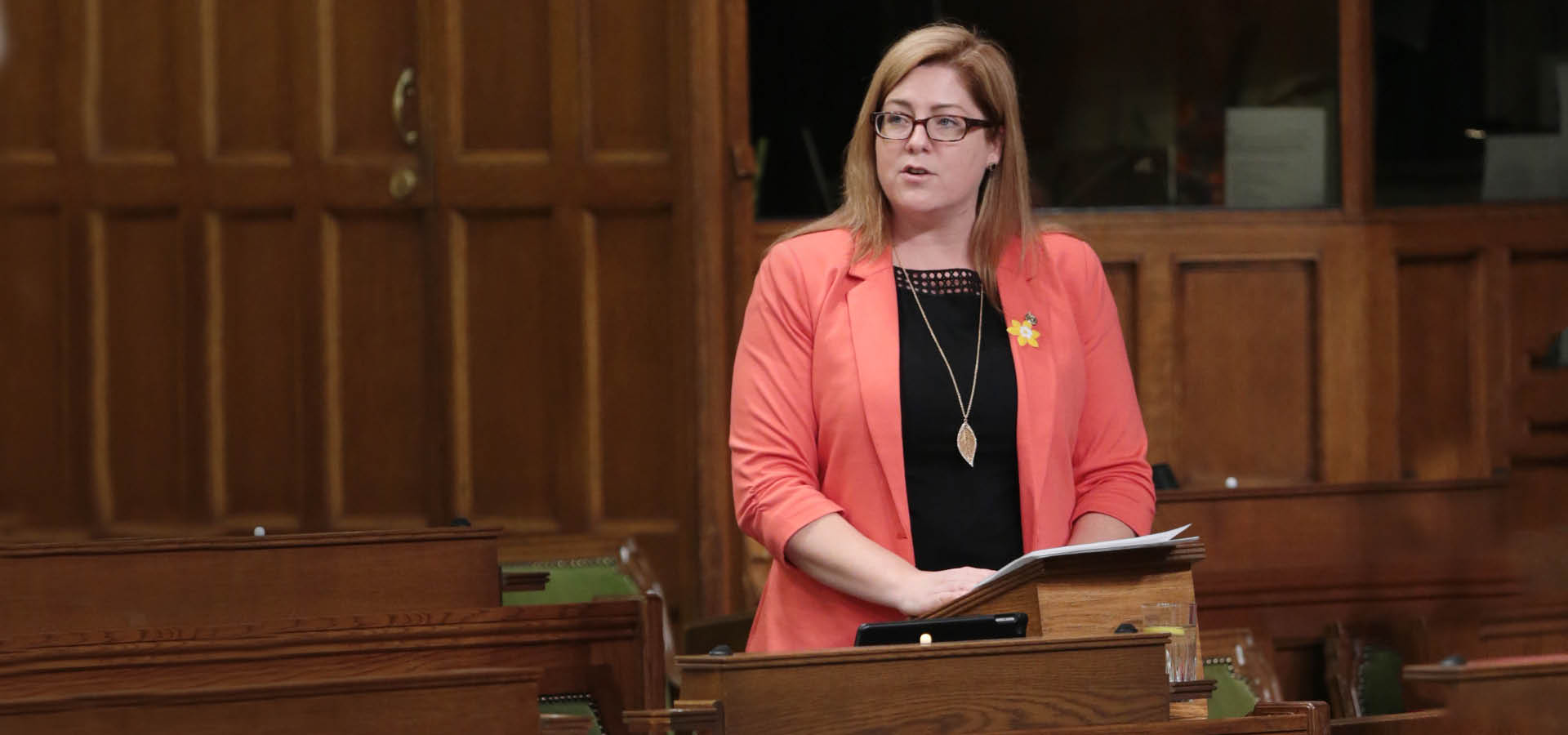November 22nd, 2016
Canadians are tired of establishment economics and unfair trade deals
Tracey Ramsey says Ottawa needs to revisit our approach to free trade after the US election results
By Tracey Ramsey, NDP International Trade Critic.
This article was first published in The Hill Times.
Two weeks after the shocking outcome of the U.S. election, it’s difficult to assess the implications of a Donald Trump presidency on the all-important Canada-U.S. relationship.
Like so many communities across Canada, my riding of Essex is situated along the Canada-U.S. border and people rely heavily on a positive relationship with our American neighbours and largest trading partner. While I’m confident the Canada-U.S. friendship will endure, it will be more important than ever for the Canadian government to stand up for Canadians’ interests.
Many Canadians are deeply concerned by Trump’s victory—and rightly so. His sexist, racist and xenophobic comments deserve our condemnation and we must stand against the kind of hatred and exclusion that defined Trump’s campaign.
Numerous commentators have suggested that many Americans were driven to vote for Trump for reasons other than his abhorrent attitudes towards women, minorities and immigrants. U.S. Senator Bernie Sanders explained, “Donald Trump tapped into the anger of a declining middle class that is sick and tired of establishment economics, establishment politics and the establishment media.”
“Many Canadians are deeply concerned by Trump’s victory—and rightly so. His sexist, racist and xenophobic comments deserve our condemnation and we must stand against the kind of hatred and exclusion that defined Trump’s campaign.”
On trade issues, Trump appealed to Americans whose good-paying jobs have disappeared and still struggle to make ends meet. He has vowed to renegotiate or repeal NAFTA, and his firm opposition to the TPP has led U.S. officials to confirm the deal is dead.
But Trump’s rash oversimplifications and his willingness to walk away from international trade partners spell potential trouble for Canada. With President Obama’s time in office quickly running out, many fear the window is closing on the likelihood of Canada getting a fair deal on softwood lumber. Despite the Liberal government pledging to get a deal done, the previous deal and its standstill period has now expired. Powerful U.S. softwood lumber lobbyists could file any day to have duties applied to Canadian imports. Every day that goes by without a deal increases the likelihood of costly litigation and jeopardizes the jobs of the hundreds of thousands of Canadians employed in the forestry sector.
I have always welcomed the U.S. presidential candidates’ opposition to the TPP. The collapse of the TPP is good news for Canadian autoworkers and dairy farmers, but many agricultural groups will be disappointed by the lost market access. Canada now has an opportunity to start bilateral fair trade negotiations with major TPP signatories like Japan and Australia. Bilateral deals must allow for enforceable health, environmental and labour standards; work to better maintain national autonomy over public services; and provide a better balance on tariffs.
Trump’s desire to reopen NAFTA has raised concerns among Canadian businesses that rely on open access to our largest trading partner. This market access must be defended and preserved. At the same time, others have argued that renegotiating NAFTA could potentially be good for Canada, which is the most-sued country under NAFTA’s Chapter 11. This controversial chapter allows corporations to sue governments in secretive tribunals over regulations that they claim could negatively impact their profits. More than 70 per cent of claims under NAFTA since 2005 have been brought against Canada. Renegotiation could provide an opportunity to revisit this problematic measure.
Ultimately, time will tell if the newly elected U.S. President is truly committed to pursuing fair trade policies that improve the lives of working Americans or if his threats were merely election-time rhetoric. Regardless, Canada should be having a serious conversation on what it means to pursue trade deals that serve peoples’ interests over corporate interests.
International Trade Minister Chrystia Freeland has vowed to pursue a progressive trade agenda, but has provided little detail on what this actually means to her. She claims CETA is the gold standard of trade agreements, echoing Hillary Clinton’s past claims that TPP is the gold standard of trade agreements. Yet both agreements would allow foreign companies to sue governments for regulating in the public’s interest. CETA would also increase the cost of drugs for all Canadians with no known benefit.
“Canada should be having a serious conversation on what it means to pursue trade deals that serve peoples' interests over corporate interests.”
I am skeptical about Trump’s desire to focus on fair trade deals, but nevertheless, last week’s election has opened a conversation in Canada about the fact that people are tired of establishment economics and unfair trade deals. Canadians will need a strong Prime Minister, International Trade Minister and government that are willing to stand up for our jobs and our values.
